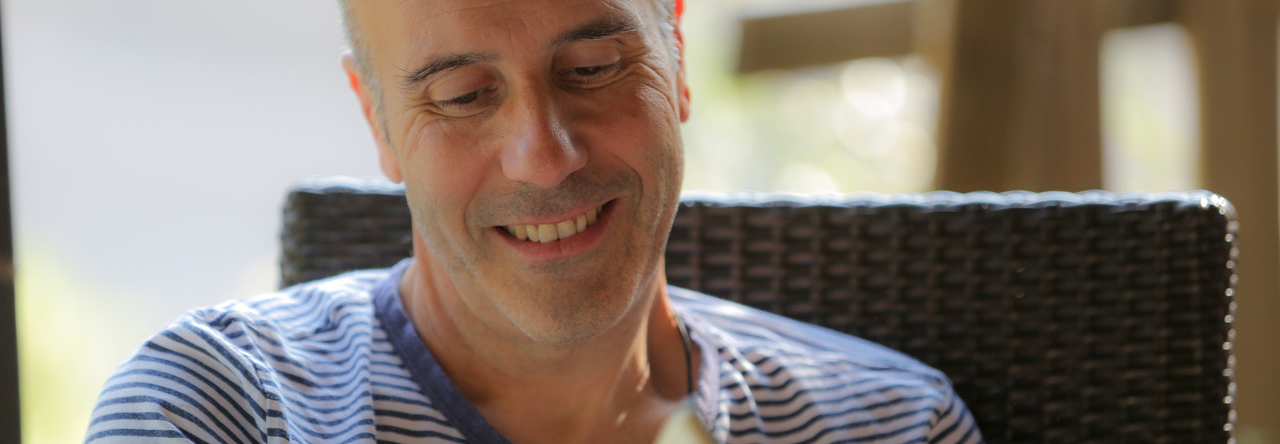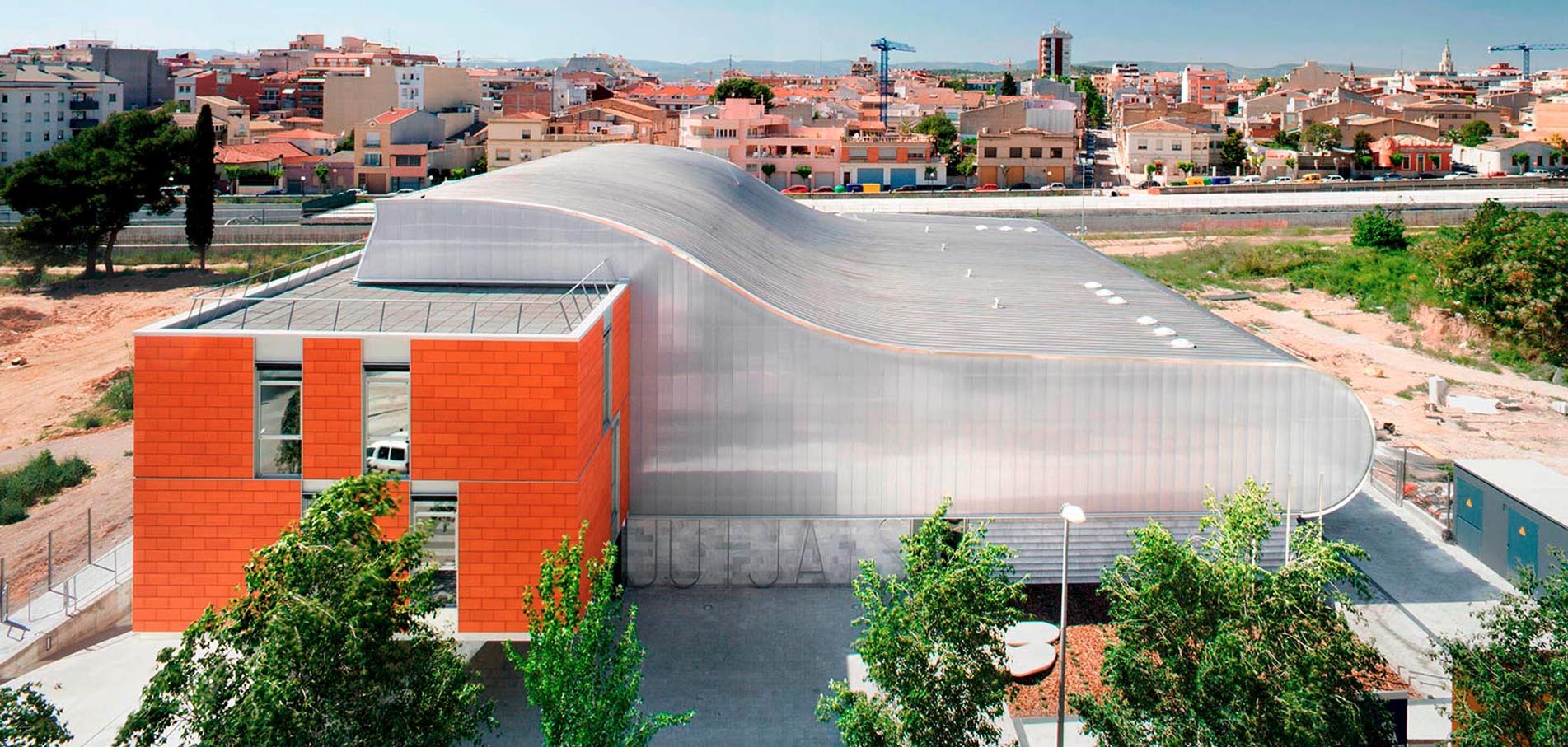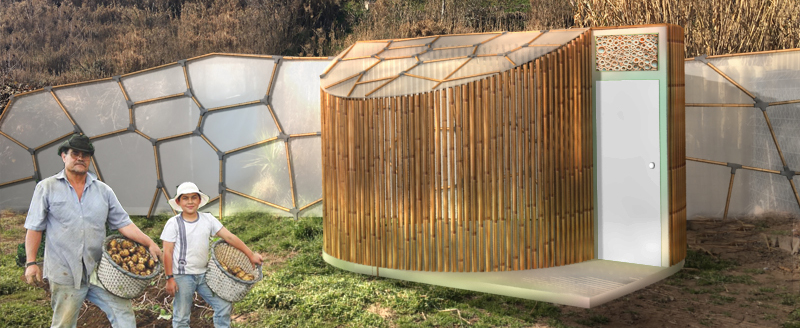

Alfredo Acosta: “Maybe nature is the big protagonist… and reconnecting with it?”
Some years ago, sustainable architecture started evolving from a set of never-fulfilled concepts and promises to a tangent reality. Social consensus on respect for the environment and the use we make of natural resources are changing pre-established paradigms in all areas, including architecture. The advancement of construction technology allows us to consider projects that were unrealistic not many years ago.
Today we talk about sustainable architecture with technical architect Alfredo Acosta, member of the Col·legi d’Aparelladors, Arquitectes Tècnics i Enginyers d’Edificació de Barcelona (CAATEEB), and who is developing an ECODISSENY project.
· Many economic environments have been in difficult times for over a year. 70% of architects are self-employed; one-third of them earn less than EUR 15,000 a year. How has Covid-19 affected a sector that was already in crisis prior to the pandemic?
Responding to your question, the profession has indeed known better times. I think that, in general, we are ‘trained’ to keep pace with the fluctuations in the volume of work.
· You’ve been working on architecture for thirty years. To what extent is sustainable architecture changing your working environment? Is it still a marginal issue, or are we talking about a trend that is becoming more and more important in your day-to-day life?
Sustainability is a concept that would be ideal if all of us were aware of its value. We are gradually understanding that we only have one planet, and that we have to “dialogue” with it, be consistent, and respect it.
I like to talk about “understanding the context”; then, you can “read” situations (general or private), see, hear, understand, and, very important, raise appropriate issues and reflect.
- Have we passed the “point of no return”?
- Do we really understand that the focus is not the individual interest, but the collective interest? Maybe nature is the big protagonist …and reconnecting with it?
- Is economic and social development possible and compatible with respect for the environment?
- Is there a need for a new perspective?
- We have technology and tools that ‘require’ millions of data every day. Can we manage this data properly and transform it into knowledge? Then, with institutional support, we can develop strategies aligned to “values”.
· Housing rehabilitation is a sector that continues to expand, partly because of the poor construction standards past decades, but to what extent is energy rehabilitation gaining ground in this area?
The lack of land for development in large cities makes rehabilitation an ideal option.
In recent years, concepts such as energy rehabilitation, healthy habitats, universal accessibility, waste and water management, green infrastructure (garden roofs), circular economy, renewable energies, emission reduction, etc. are within a conceptual framework with a common nexus, CONSISTENT “ECO SUSTAINABLE” GROWTH, which generates a paradigm shift.
In my opinion, the great challenge lies in ensuring that we are agile in applying the knowledge and experience we have gained. Let me explain myself. Methods, regulations, legal framework, solutions, and traditional construction processes evolve slowly (not at the same speed as the applicable knowledge).
Maybe it is not hurting us badly enough, so we don’t have a need to move faster. Can we see what’s obvious only, but ignore intangible things?
This world is very different from the world of the time when you finished your studies, and technology has progressed a lot in recent years.
· What training resources do architects from your generation, who were trained only in constructive or historical rehabilitation, have?
We have no choice but to be proactive and continually trained. Professional schools offer training courses, web resources (selecting the source of information) and the “eternal trainee” attitude, day after day, in the profession.
· In this sense, and since the digitalization of your sector, how do new architectural technologies and the introduction of new digital tools such as the BIM (Building Information Modelling) methodology help to project more sustainable housing and space?
Based on the concept of “if it is measurable, it is better”, one can conclude that we have, within our reach. the amount of tools and software that provide us with enough data to make tuned decisions for each need.
BIM is the natural evolution of early drawing programs. With BIM, we can design, “build in 3D”, financially assess, plan, and monitor the execution of a project. We can see problems and anticipate them.
· Anything else you want to emphasize?
To conclude, I would just like to raise a few points that I think are appropriate: I think it is important to understand cultural differences. The value of the community in decision-making (cohousing). New look at funding options. It is possible to transform the economy and to achieve a balance with the natural environment and biodiversity. Lean methodology. There are many environmental certifications for buildings, and I think that can lead to confusion for the end user.




Cal cuidar la Natura, per descomptat. Qui no entengui això caldria que fecim com a la resvolució francessa, a la guillotina!
Completament d’acord, Jordi, però tampoc s’ha de caure en el parany de prohibir-ho tot i haver de passar pel raser dels teòricament ecologistes que, volen prohibir a tota costa vehicles clàssics, i potenciar noves tecnologies, entre elles, els vehicles elèctrics, que contaminen infinitat més, en la seva producció i desvallesta-ment, que no pas els vehicles de combustió… Moltes gràcies pel teu comentari, Jordi!!!
👏
Gràcies, Daniela!!!
és veritat jordi
Gràcies pel teu comentari, Manel!!!
Hauríem de poder de sortir de massificació de les ciutats apilats en grans blocs i poder viure més en pla, rural, en comunitat reduïda i ben avinguda amb l’entorn en que vivim.
Hauríem de poder fer un Món més sostenible. Gràcies per l’aportació, Pere.
Molt be 👍
Gràcies, Josep!!!
Des del meu punt de vista, tendim a una reorganització en la distribució de les persones. Gràcies a la creixent digitalització es pot teletreballar cada cop més. El decreixement de les ciutats, i la repoblació de pobles és fonamental per la sostenibilitat del medi ambient.
Esperem que així sigui, i que a gent es doni comte de què els pobles és el millor lloc on viure per a crear una vida més sostenible.
👍
Gràcies, Joan! Ens veiem per La Plaça!
M’agradat molt com ho ha explicat, i certament tenir aquesta mirada colectiva i de sostenibilitat es el que ens fara millors i que el nostre planeta sigui estimat i respectat
Molt cert! Només tenim aquest de planeta i no és que el tinguem en propietat, sinó que més aviat podria considerar-se com una mena de regal, de què se n’haurien de beneficiar totes les generacions i no només una part de la humanitat.
D’alguna manera tots estem units al nostre planeta terra, el ens dóna, tractem-amb afecte que no tenim altre.
Tota la raó, Vicente! Si tots seguíssim aquest principi, segur que el planeta aniria molt millor. Gràcies pel comentari! 🙂
Per mi es super important deixar de pensar individualment per fer-ho col·lectivament, sols així podem avançar.
Totalment Anna, la consciència i col·laboració col·lectiva és quelcom molt important en una societat.
Ja era hora que deixem de mirar-nos el melic i pensem en comú, en tothom, en el medi on vivim… construir respectarcreixer compartir solidsritzar… fomentem de nou els valors ee la vida i dem un canvi en totes les disciplines!! Dantastic article
Gràcies, Laura pel comentari.
M’ha encantat l’article, gràcies!!
Hauríem de fer les coses molt millor